21 essential resources to look at before starting your self build or renovation
Don't start your self build project without reading Ben Adam-Smith's – host of the House Planning Help podcast – expert guide to all the resources you should be aware of if you want your project to be a success
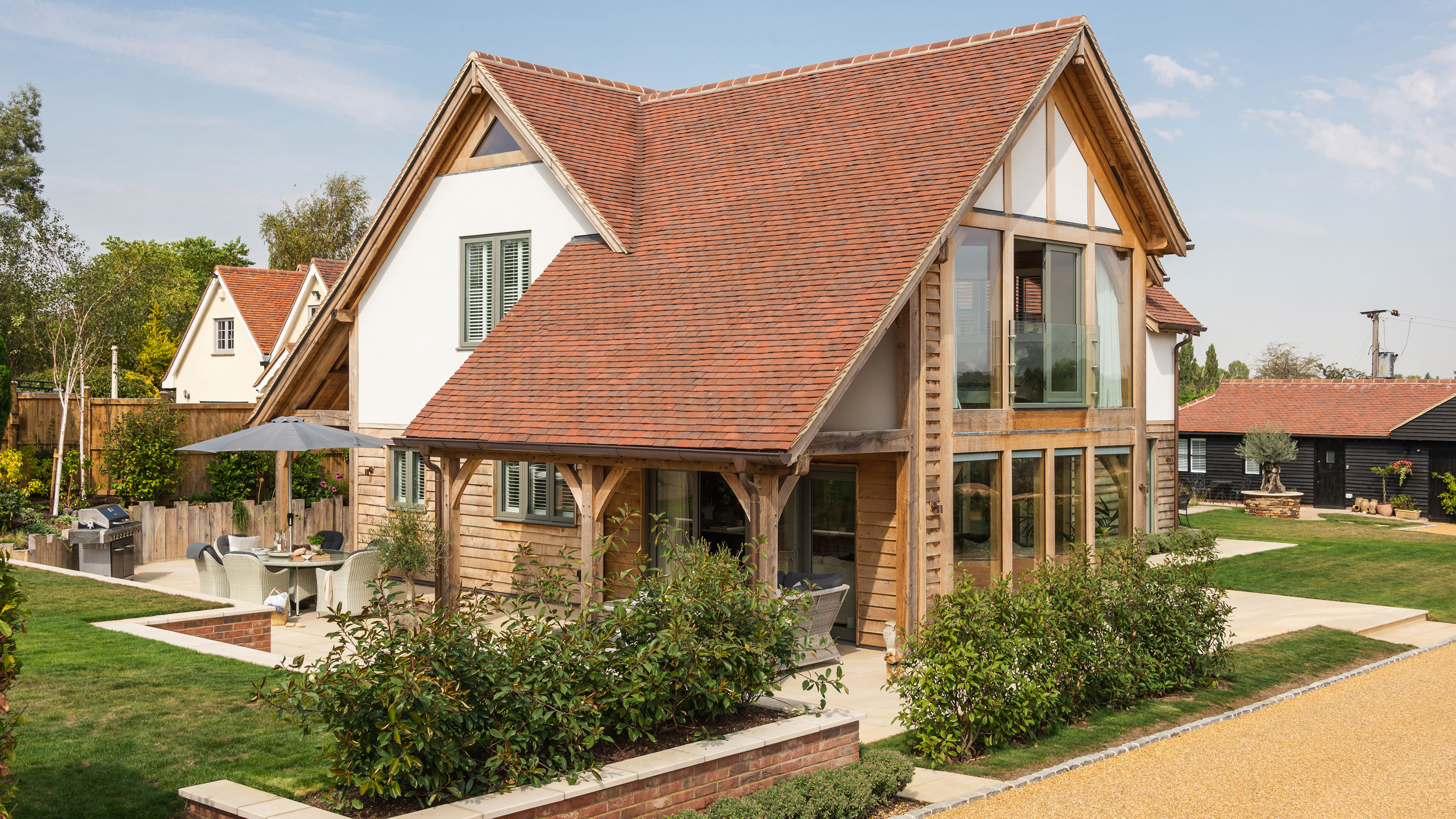
- 1. Open days and site visits
- 2. Specialist websites and magazines
- 3. Exhibitions and shows
- 4. Television programmes
- 5. Online forums and social media
- 6. The Housebuilder's Bible
- 7. Right to Build register
- 8. Industry events
- 9. Planning Portal
- 10. Land finding services
- 11. Build cost calculator
- 12. Self build mortgages
- 13. How-to guides
- 14. NaCSBA
- 15. Specialist insurance and warranties
- 16. The Planning Hub
- 17. Help to Build
- 18. RIBA
- 19. CIAT
- 20. Oak frame show homes
- 21. Federation of Master Builders (FMB)
- 22. Trade review sites
Bring your dream home to life with expert advice, how to guides and design inspiration. Sign up for our newsletter and get two free tickets to a Homebuilding & Renovating Show near you.
You are now subscribed
Your newsletter sign-up was successful
At the beginning of a project you’re always brimming with enthusiasm, the sky’s the limit and you are blind to what lies ahead. Going into a self build is no different. The early stages of learning, plotting and planning are perhaps the most exciting — the pressure is off and you can gradually get your head around the task in hand.
However, as you go through the project, you will need to have a clear idea of what you want and how to get it. All the resources we're about to share have value, but probably they have their greatest worth at the beginning of the project when key decisions should be made.
When it comes to absorbing information, different people learn in different ways, whether that’s by listening, reading or watching videos — whatever works for you. It’s worth remembering, though, that you don’t need to know everything and get involved with everything. You need to see the big picture, be good at asking questions, listening, evaluating information, making a decision and moving on.
Along your journey it’s good to be aware that some will have a vested interest in trying to sell you something. So with all that in mind, here’s our guide to the go-to resources for information, advice and ideas for embarking on your self-build project. Before getting started on your self build project, a huge amount of of careful planning and preparation is required — not only to help keep a handle on your build costs and make the right decisions for your project, but also to avoid unnecessary stress and changes mid-way through.
It can be daunting to take on such an ambitious project, especially if you've never done it before, but fortunately there are numerous resources, covering all aspects of the build process, available to help you push on with your project — and here we explain all the resources to be aware of in order to get your project off the ground and running smoothly.
1. Open days and site visits
It surprises me how many people will spend hundreds of thousands of pounds on building a home without actually visiting a few first — including some that are similar in style. We are shaped by the homes in which we live but a lot of them are old, crudely constructed or have little architectural merit. So get out from behind the tablet or laptop and visit some houses. There will probably be a few ‘open house’ events near you during the year, organised by local community groups or by self-build package companies. If not, search further afield and make a weekend of it.
Regular fixtures include the Passivhaus open days that are held worldwide twice a year where homeowners throw open their doors. It’s not always about going to see buildings you absolutely love but trying to stay open-minded and curious.
Bring your dream home to life with expert advice, how to guides and design inspiration. Sign up for our newsletter and get two free tickets to a Homebuilding & Renovating Show near you.
Being issued with floorplans of the houses is really useful for getting to grips with what space you need.
Perhaps there are people in your area building right now. Pluck up the courage to speak to them. Normally a site or house visit will trigger a hundred questions. Self builders love helping the ‘next generation’ and will be open about what’s gone on.

2. Specialist websites and magazines
This may seem like stating the obvious because you’re probably already doing this now, but are you making the most of it? Get a subscription in those early days when you have most time. You have the benefit of a team that is targeting you. Their remit is to write about every possible aspect that you may encounter. After a decade of doing this, I can assure you there are a lot of angles and issues to find out about. A great place to start is to arm yourself with a stack of magazines, like Homebuilding & Renovating (you can check out our subscription offers here), that are packed full of information, inspiration and contacts to set you on the right path when it comes to building your home.
Not only are magazines essential for growing your own knowledge base, but they will often spark ideas that may never have occurred to you.
3. Exhibitions and shows
What you get from a self build show depends largely on where you are in the process. Initially, I would recommend going for the seminars that will give you a good grounding in the key areas. Coming to those same shows later in the process you may feel that you know a lot of what the seminars taught and now have a specific question for an expert or are hunting down a supplier. We buy so many products online these days, that it can be invaluable to view them in person.
The expert advice on offer at exhibitions such as the Homebuilding & Renovating Show, is invaluable to self builders and renovators.
You'll be able to browse the latest products and receive independent expert advice at the Advice Centre.
In addition to the Homebuilding & Renovating Shows that come to your local area, there’s a permanent exhibition centre in Swindon that is worth a visit — The National Self Build & Renovation Centre.
Sometimes it can be hard to get your head around what’s going on with the foundations or how different construction systems come together, so there’s a particularly useful section that displays models of all these things and more. Getting a guided tour will mean you don’t miss any of the detail.

4. Television programmes
Virtually nobody in the construction world will recommend watching Grand Designs as an educational resource, so why am I? Firstly, there comes a time of day when you’re probably winding down for bed — instead of watching the latest box set, why not tune into something that might come in useful! People always say Grand Designs focuses on crises, which never happen on a normal self build, but in my experience, many self builds have underlying drama, whether or not people want to talk about it or dwell on it. Drama aside, shows such as this will show you all the build systems, go through every possible thing that could ever happen and give you a second sense for when things go wrong and why they go wrong.
5. Online forums and social media
It can be a lonely existence as a self builder. Speak to a professional and you’re never sure whether they are in the process of trying to sell you something! That’s why surrounding yourself with like-minded people is a welcome respite. One of the main destinations is BuildHub. It’s UK-based and has knowledgeable moderators. As with any forum, you might think you’re the first person to ask a particular question when, in fact, you’re almost certainly not.
There are many groups on Facebook that seem to work well, too. The only problem is the spammers. Whether it’s advertising a piece of land, a build system or professional services, you may have to wade through a number of posts to get to the bit you want. YouTube is excellent for specific things if you are taking a DIY approach. Someone has always got there first and made a tutorial about it. Again these are often moderated, this time by the comments below.
For me, I feel most at home on Twitter. There are lots of industry professionals on there who don’t seem to be selling as much, but are ripe for intercepting. You can follow the people that you gel with or search around a given word. The content
is always bite-size, which makes it quick and can provide you
with ideas to explore.
6. The Housebuilder's Bible
There are lots of books about building a house but few hit the mark in the same way that the Housebuilder’s Bible by Mark Brinkley does. This is because Mark Brinkley has lived and breathed this subject for decades, and developed and revised his book many times. Other than understanding how all the pieces fit together, his benchmark house illustrates how simplicity will always keep your costs down.
Housebuilding can be a dry subject at times but Mark allows his sense of humour to shine through, which can make you laugh out loud at some of the ridiculous practices that go on in construction. Somehow, it’s a book you can read in one go as well as a reference manual. He also includes costs, which is a godsend for us but a chore for him as he must have to laboriously update all the figures and republish every couple of years. But it’s one more reason this is such a useful companion on your self-build journey and a book I often recommend.
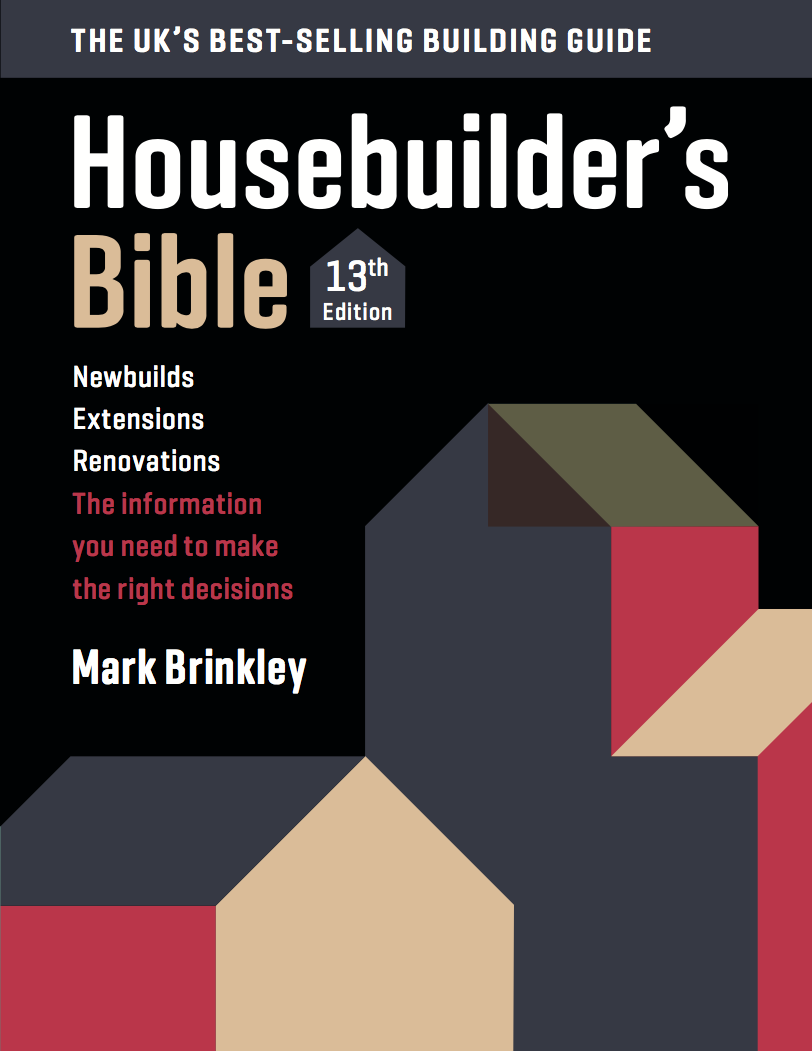
7. Right to Build register
As part of the Housing and Planning Act 2016, local authorities are now required to help find land for those interested in building their own homes. This legislation is known as the Right to Build.
If you’re interested in building your own home, make sure you register your interest with your local authority.
8. Industry events
I probably wouldn’t be where I am today if I wasn’t drawn to some industry events. For me it was green building organisations (AECB, ASBP, Passivhaus Trust and Green Register). I would just hear the names crop up one time too many and wonder what was happening at their conferences and online events. Yes, you have to get used to people wondering why you’re there and some of the content may well go over your head, but these are excellent places to learn and they are often at the vanguard of what can be achieved. It’s also a stress-free environment to chat with building professionals. It may also provide you with useful contacts. So if you find yourself naturally drawn into an area of building, keeping your ear to the ground and attending industry events could be a really smart move.
9. Planning Portal
You’ll need planning permission if you’re going to build your own home, but there are some exemptions under permitted development if you are renovating or extending.
You’ll find everything you need to know about planning permission (as well as all relevant documentation) on the Planning Portal site.
10. Land finding services
The notion that there is lack of available land on which to build can often put off potential self builders from going ahead with their project. But there may be more land available than you may think.
You might not find an abundance of virgin plots in your local area, but there could be opportunity to develop a brownfield site, or you may find an existing property where it makes more financial sense to demolish and replace rather than renovate.
A great place to start is Homebuilding & Renovating's own land finding service: plotfinder.net, which gives you access to more than 10,000 plots and development opportunities for only £5 a month. Not only is there a range of plot types as well as conversions and renovation projects, there's also the option to sign up for a newsletter that delivers a roundup of the best projects coming to market in the UK to your inbox each week.
These services will not only highlight where land and renovation opportunities are available, but will also give you an idea of the price you can expect to pay in your chosen area.

11. Build cost calculator
This free Build Cost Calculator will help you to estimate your build costs, taking into account the kind of house you’d like to build, where you want to build it and how involved you want to be in the process.
Understanding how much a build such as the one you have in mind is likely to cost is going to be hugely useful before you meet with finance providers.
12. Self build mortgages
Getting to grips with how self build mortgages work is not only essential for working out what kind of funds will be available to you but lenders can also be a useful source of information.
"Unlike a traditional residential mortgage where a single advance is generally made on completion of purchase, self build mortgage payments are released in stages," explains Daniel Capstick, mortgage manager at Ecology Building Society.
13. How-to guides
Learning the techniques behind some building work will be particularly useful if you’re looking to do some or most of your self build yourself, or are after ways of reducing your costs.
You might like to pay a visit to our YouTube channel for a series of informative how-to videos, including step-by-step guides on topics such as how to insulate your loft and top tips for plastering.
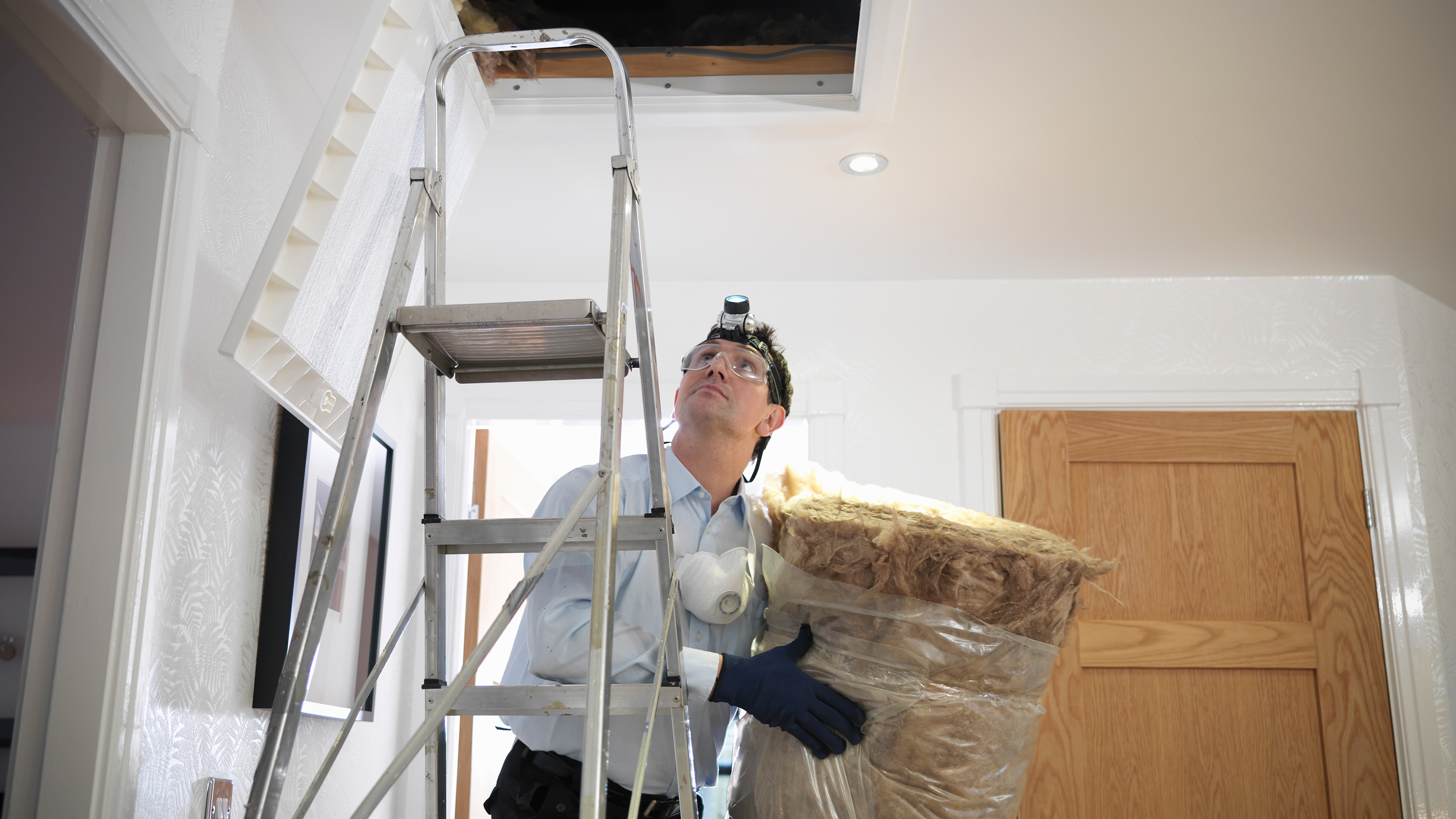
14. NaCSBA
If you aren't familiar with NaCSBA – The National Custom and Self Build Association – then now is the time to find out a bit more about them. NaCSBA aims to promote self build and custom build as a significant form of home building in the UK. NaCSBA also produces The Self Build Portal which is full of useful information on a variety of self build areas.
15. Specialist insurance and warranties
Don't forget that a self build or renovation project requires a different kind of insurance to protect homeowners than just your regular home insurance.
The right kind of insurance is a must when it comes to building your own home and it is essential to spend time looking into self build insurance. Homebuilding & Renovating has partnered with leading insurance specialist Self Build Zone to provide bespoke solutions at market-leading rates for its readers.

16. The Planning Hub
The Planning Hub is an online resource that will help you understand how to get to grips with complex planning rules.
Once you’re signed in, you can access easy-to-read guides written by Homebuilding & Renovating's planning experts, which will provide you with key information to help you obtain planning permission.
17. Help to Build
The Help to Build scheme was launched in 2021 and was designed to make it more affordable and realistic for more people to self build their home.
The set-up of Help to Build requires you to have a self build mortgage to help pay for land and set-up costs, and your lender will release funds to you at various stages of the build. However, you'll then get your equity loan and start to pay fees for it after you’ve built your home.
Richard Bacon MP, a member of the Right to Build Task Force, says the scheme “could open up a range of opportunities” for self builders.
18. RIBA
The Royal Institute of British Architects (RIBA) is the professional body for architects — you can use their search function to find a RIBA-approved architect in your area.
19. CIAT
The Chartered Institute of Architectural Technologists (CIAT) is the qualifying body for architectural technology – you can make use of their search function to find an architectural technologist near you.
20. Oak frame show homes
If you’re thinking about building an oak frame home, take the opportunity to stay overnight in a fully functional show home courtesy of Oakwrights to get a sense of the end result you could achieve.
Other well-known oak frame specialists, such as Border Oak, also hold open days and it is well worth a visit to Potton's Show Centre too, where you can get a real sense of the design, as well as finding loads of ideas for your own project.
If you find it challenging to visualise a design having just seen it on paper, visiting show homes will be exceptionally useful for you.
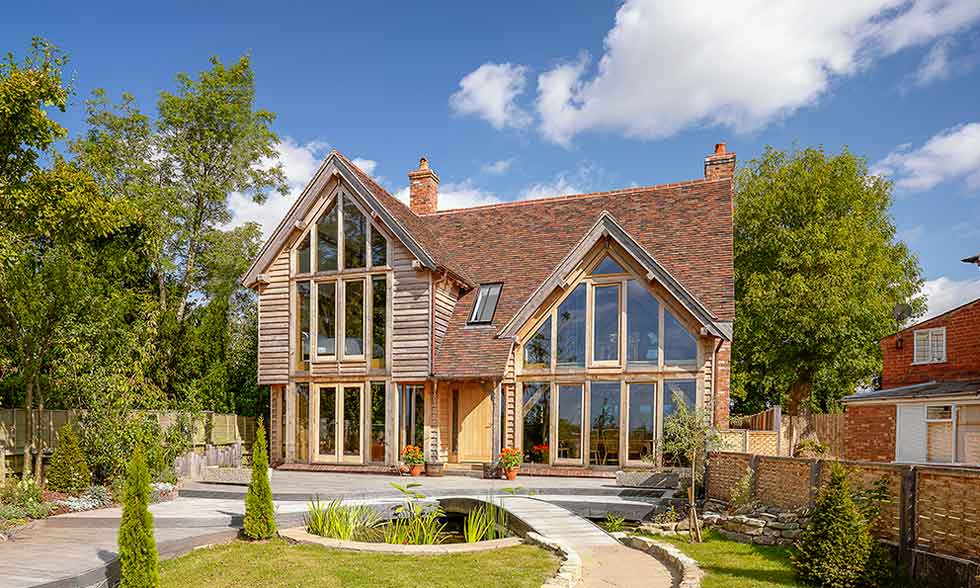
21. Federation of Master Builders (FMB)
The Federation of Master Builders (FMB) can be a very useful source of information as well as lending a helping hand when it comes to find a builder.
Their website has a useful 'find a builder tool' which allows you to search for trusted builders and other trades in your area.
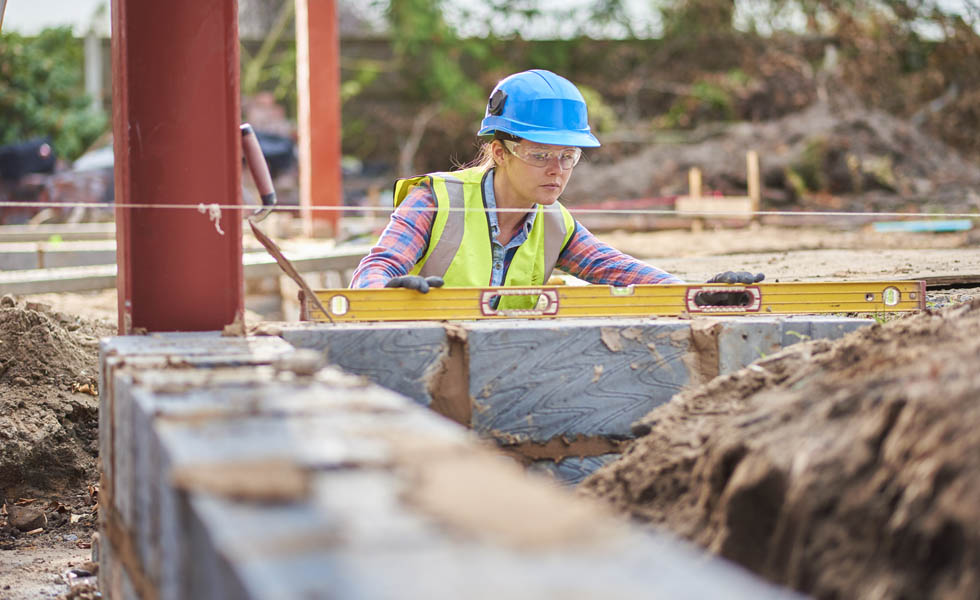
22. Trade review sites
One of the most stressful tasks at the beginning of a project is finding the right team to work on your project and bring your ideas to life. Thankfully, along with getting personal, trusted recommendations, there are trade review sites that can help.
Have browse on Checkatrade, MyBuilder and Rated People. Many of these sites feature reviews from previous clients to help you find a reliable tradesperson to help with your project.
Ben Adam-Smith is a film-maker, communicator and eco-building enthusiast. After 15 years working in TV and radio, Ben changed channels to set up Regen Media — a business that uses cutting-edge new media tools to help green-minded construction firms build better communications. Ben also runs the website and podcast, House Planning Help, which is dedicated to inspiring self builders to build energy-efficient homes. He has recently completed his own Passivhaus self build.

